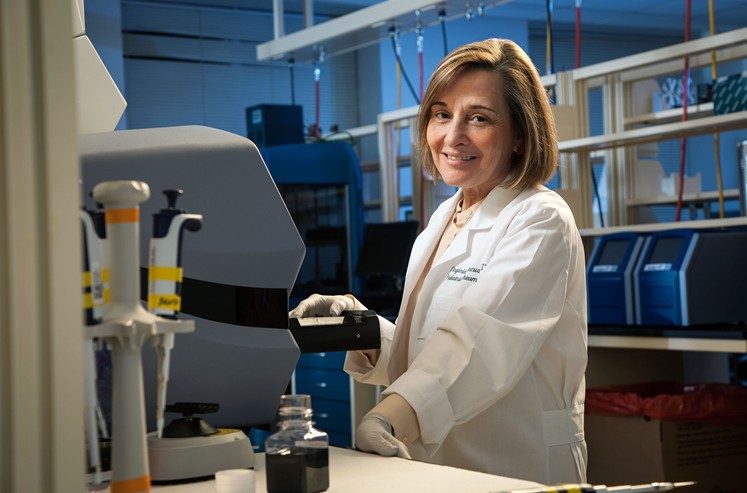
Few industries are as critical to the vibrancy of North Texas as healthcare. The sector adds more than $52 billion to the local economy each year and supports at least 600,000 regional jobs.
It’s also tough to find a field with a more virtuous mission; after all, healthcare companies and workers are in the business of improving and saving lives. We think that’s worth a little recognition.
D CEO’s new Excellence in Healthcare Awards—produced in partnership with our online news site, D Healthcare Daily—honor industry executives, practitioners, innovators, researchers, and others who stand out in their fields. The inaugural program attracted more than 180 nominations. From that group, D CEO editors selected 30 finalists and winners in 11 categories. We’re pleased to tell you about them over the coming days.
Achievement in Medical Research: Dr. Virginia Pascual, co-director and principal investigator, Baylor Institute for Immunology Research
Systemic-onset juvenile idiopathic arthritis, or SoJIA—also known as Still’s disease— is a form of arthritis that affects 25,000 to 50,000 children in the United States. Ultimately, it can result in a child being stuck in a wheelchair for life. What’s worse, existing medications for SoJIA have serious side effects, such as growth retardation, cataracts, and high blood pressure.
This frustrated Dr. Virginia Pascual. The co-director and principal investigator at the Baylor Institute for Immunology Research, Pascual led a team that found SoJIA patients’ bodies produced excess interleukin 1, one of a family of molecules that immune cells release when bad things enter the body.
In working to develop a drug for rheumatoid arthritis, the researchers discovered that SoJIA patients’ serum—the pale-yellow component of blood that holds blood cells in suspension—prompted excessive production of interleukin 1 by healthy cells.
It so happened that a drug was available to block that molecule. Pascual’s team got permission from the families of two children with SoJIA to try it out on them, after every other treatment had failed.
In less than 48 hours, the kids’ arthritis was gone. Pascual’s team later extended the treatment to more patients, then took the drug into clinical trails.
“Somebody had to do it,” Pascual says. “I am very happy that my colleagues and I decided to go for it.”
—Jeff Bounds
FINALISTS: DR. ETHAN HALM, UT SOUTHWESTERN MEDICAL CENTER; DR. HELEN HOBBS, UT SOUTHWESTERN MEDICAL CENTER





